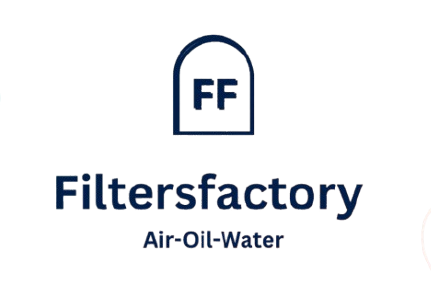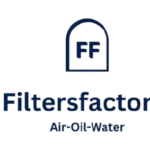- Mon - Sat: 9.00 AM - 7.00 PM
AHU Filter – The Heart of Clean Air in HVAC Systems
In today’s world, where air quality directly impacts health, comfort, and productivity, maintaining clean and fresh indoor air has become a top priority. One crucial component that makes this possible in air conditioning systems is the AHU Filter. The Air Handling Unit (AHU) filter plays a vital role in purifying the air that circulates through homes, offices, hospitals, malls, and industries.
In this blog, we’ll explore what an AHU Filter is, how it works, its types, benefits, and why regular maintenance is essential for maintaining superior indoor air quality.
What is an AHU Filter?
An AHU Filter is a filtration component installed inside the Air Handling Unit (AHU) of an HVAC system. Its primary purpose is to capture dust, dirt, pollen, bacteria, and other airborne particles before the air is distributed indoors.
In simple terms, the AHU filter acts as a barrier between polluted air and breathable indoor air, ensuring that the air circulating inside buildings remains clean, safe, and comfortable.
How Does an AHU Filter Work?
The working principle of an AHU filter is straightforward yet highly effective. Here’s how it works step-by-step:
- Air Intake
Outdoor or return air enters the AHU system through the intake section. - Filtration Process
The air passes through the AHU filters, which trap contaminants and particles of various sizes depending on the filter type. - Conditioning and Circulation
After filtration, the cleaned air is cooled, heated, or humidified by the AHU system and then distributed throughout the building via ducts.
This continuous process ensures a steady supply of clean and conditioned air inside the premises.
Types of AHU Filters
Depending on the air quality requirements, different types of AHU filters are used. Here are the most common ones:
1. Pre-Filters
- These are the first line of defense in the AHU system.
- They capture large particles like dust, hair, and debris.
- Pre-filters help protect the finer filters placed downstream.
Efficiency Range: G1 to G4 (as per EN 779 standards)
2. Fine Filters
- Designed to trap smaller particles such as pollen, mold spores, and fine dust.
- Typically installed after pre-filters for more efficient purification.
Efficiency Range: M5 to F9
3. HEPA Filters (High-Efficiency Particulate Air Filters)
- These filters capture up to 99.97% of particles as small as 0.3 microns.
- Commonly used in hospitals, cleanrooms, and laboratories.
- Ideal for environments that demand ultra-clean air.
4. Activated Carbon Filters
- These filters contain activated carbon granules that absorb gases, odors, and volatile organic compounds (VOCs).
- Used in commercial spaces, industries, and laboratories to maintain fresh air quality.
5. ULPA Filters (Ultra-Low Penetration Air Filters)
- Provide even higher filtration than HEPA filters.
- Used in extremely sensitive environments like semiconductor manufacturing or pharmaceutical production.
Benefits of Using AHU Filters
Installing high-quality AHU filters offers multiple benefits for both residential and industrial applications:
1. Improved Indoor Air Quality
The primary advantage is the removal of harmful airborne particles that can cause allergies, respiratory issues, or irritation.
2. Enhanced System Efficiency
Clean filters reduce strain on the HVAC system, improving its performance and lifespan. When filters are clogged, the system works harder, consuming more energy.
3. Energy Savings
Properly maintained AHU filters allow smooth airflow, which helps reduce electricity consumption and operating costs.
4. Protection of Equipment
Filters prevent dust and debris from entering coils, fans, and ducts, protecting expensive components from damage.
5. Health and Comfort
By removing pollutants and allergens, AHU filters help create a healthier and more comfortable environment for occupants.
6. Compliance with Air Quality Standards
Many industries, such as pharmaceuticals, food processing, and healthcare, are required to maintain strict air purity standards. AHU filters help meet these compliance requirements.
Applications of AHU Filters
AHU filters are used in a wide range of industries and environments where air cleanliness is essential, such as:
- Hospitals and Laboratories – To maintain sterile air conditions.
- Commercial Buildings and Offices – To ensure comfortable and clean air circulation.
- Shopping Malls and Airports – For dust and odor control in large public spaces.
- Industrial Facilities – To protect sensitive machinery from contamination.
- Pharmaceutical and Food Processing Plants – To maintain hygiene and product quality.
How Often Should You Replace AHU Filters?
The lifespan of an AHU filter depends on various factors such as usage, environment, and filter type. However, general replacement guidelines include:
- Pre-Filters: Every 1 to 3 months
- Fine Filters: Every 3 to 6 months
- HEPA Filters: Every 6 to 12 months
- Carbon Filters: Every 3 to 6 months
Always check the manufacturer’s recommendations and monitor air pressure drop indicators to determine the right replacement time.
Maintenance Tips for AHU Filters
To ensure optimal performance, regular maintenance is essential. Here are some important tips:
- Inspect Filters Regularly
Check the filters at least once a month to detect clogging or damage. - Clean or Replace as Needed
Some filters are washable, while others must be replaced. Follow the recommended maintenance schedule. - Monitor Airflow and Pressure
A sudden drop in airflow may indicate a clogged filter. Use pressure gauges to track this. - Use Genuine and High-Quality Filters
Always choose certified AHU filters that meet international standards. - Keep Surrounding Areas Clean
Ensure the air handling unit and ducts are free from dust and debris to prevent recontamination.
Why Choose High-Quality AHU Filters?
High-quality AHU filters may seem slightly expensive initially, but they provide long-term value by enhancing system efficiency, ensuring consistent air quality, and reducing maintenance costs. Using cheap or low-grade filters can lead to poor filtration, system damage, and increased energy consumption.
If you’re running a business or managing a large facility, investing in premium-grade AHU filters ensures healthier air, happier employees, and reduced operating expenses.
Conclusion
An AHU Filter is more than just a part of your HVAC system — it’s the backbone of indoor air quality. Whether in homes, offices, or industrial facilities, clean air contributes to better health, productivity, and overall comfort.
By choosing the right filter type, maintaining it properly, and replacing it on time, you can ensure your Air Handling Unit performs efficiently while keeping your air pure and fresh.
So, the next time you think about indoor air quality, remember — the AHU Filter is doing all the hard work behind the scenes to keep your environment clean and healthy.

